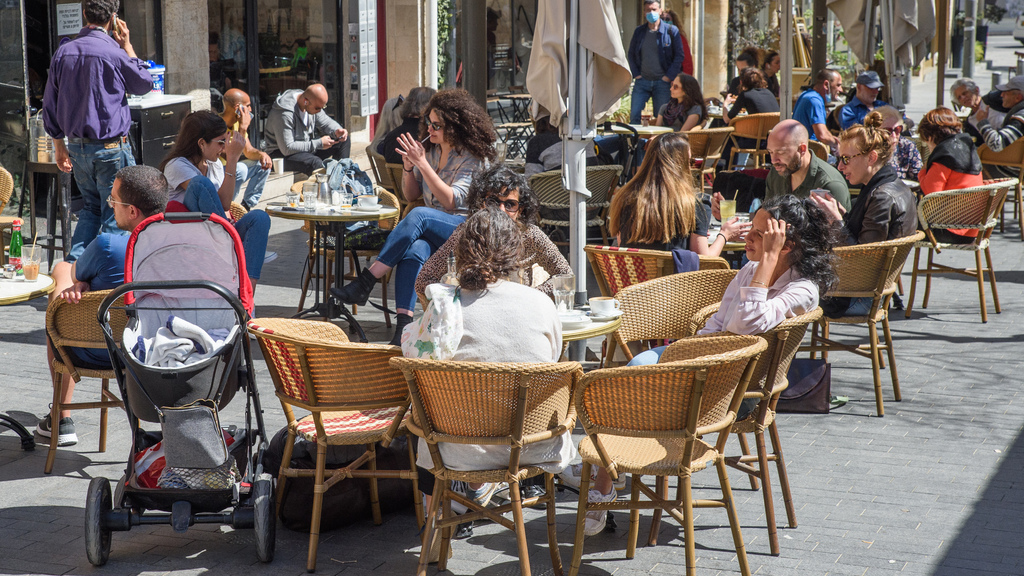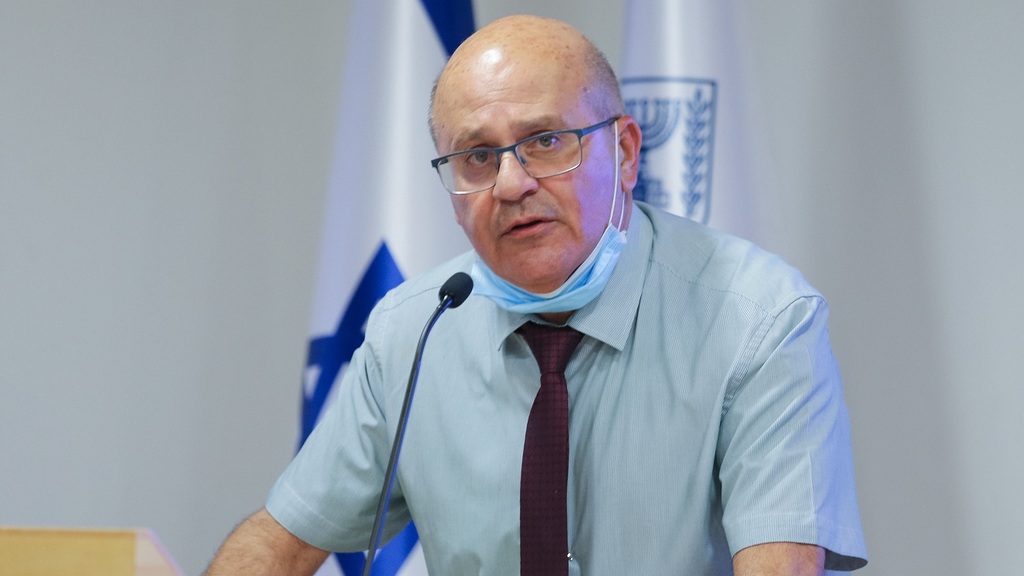A senior health official said Thursday that Israel's plan to scrap its Green Pass program from next week is a "risk", which he hopes will not "blow up in our faces".
Health Minister Yuli Edelstein announced on Sunday that Israel will not extend most domestic COVID-19 restrictions past June 1 as infection rate remain low throughout the country, including the need to present vaccination certificate at entrances to some public facilities.
2 View gallery


Israelis fill up cafes in Jerusalem after restrictions were lifted
(Photo: Shalev Shalom)
Health Ministry Director General Prof. Hezi Levi told Ynet despite the planned move to lift all remaining curbs, the pandemic "isn't over" and some measures, such as indoor mask mandate, will remain in place.
"There is still an order to wear masks in confined spaces. There are still restrictions at Ben Gurion Airport. We have to remember there are [coronavirus] mutations and variants around the world and in Israel. That's why we still have to be very careful."
The professor added the state is not enforcing well enough the mandatory quarantine for new arrivals from abroad and since Ben Gurion Airport is Israel's main port of entry, there is an increased risk of new variants entering the country.
"The public also needs to show understanding and maturity and they are not doing it well enough, unfortunately. About 70% of those who have enter self-isolation for ten days with two coronavirus tests or 14 days [with no tests] do not do it and because of that, of course, we worry," he said.
He said most of those leaving the country are subjected to rapid coronavirus tests and even serological examinations to determine whether someone has coronavirus antibodies. But, according to Levi, it is not enough to completely prevent the possibility of new variants entering the country.
"Once a person who has returned from abroad comes in contact with others and does not stay in self-isolation, he can infect people and produce a chain of infection that we would not be aware of immediately."


